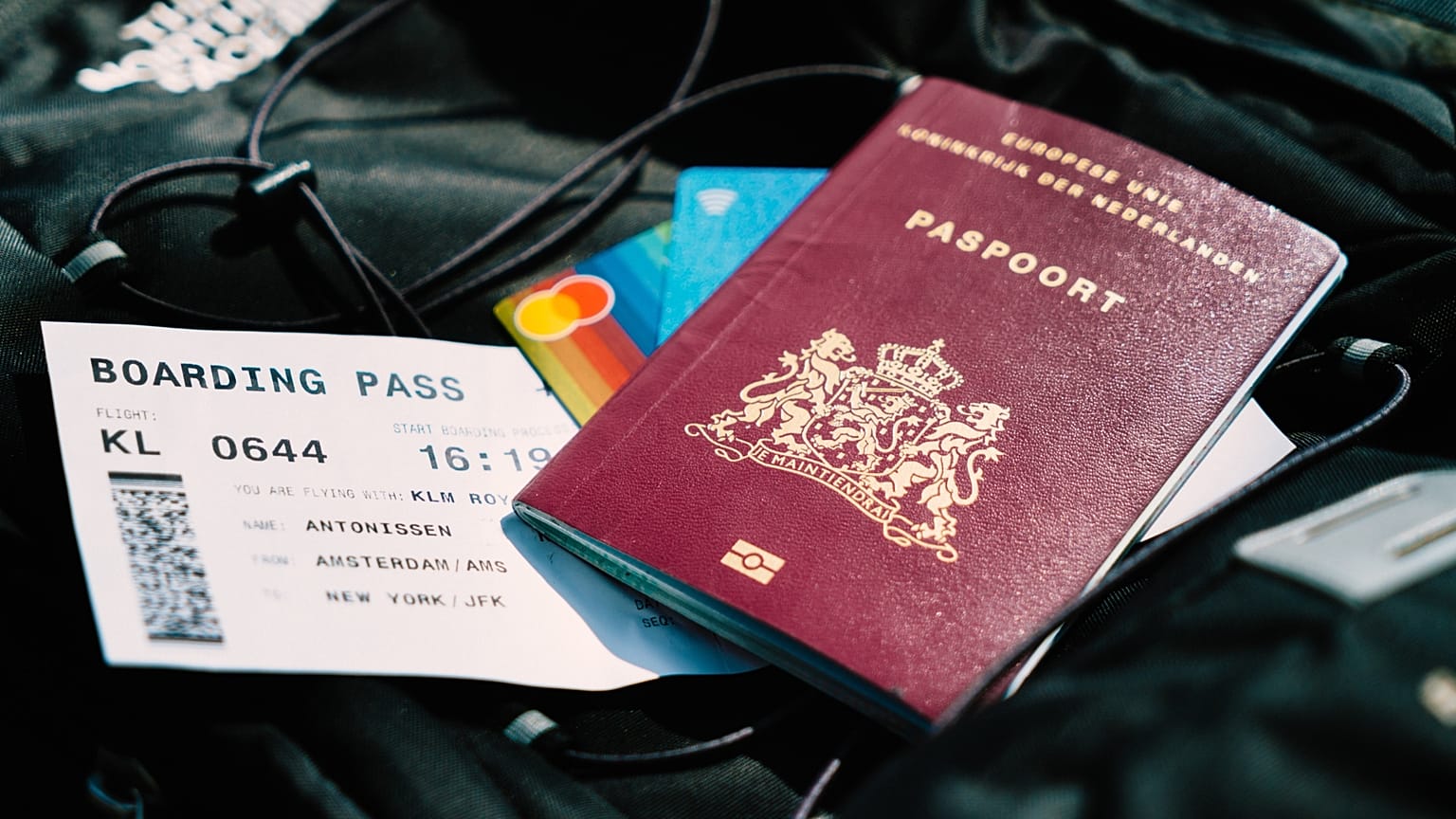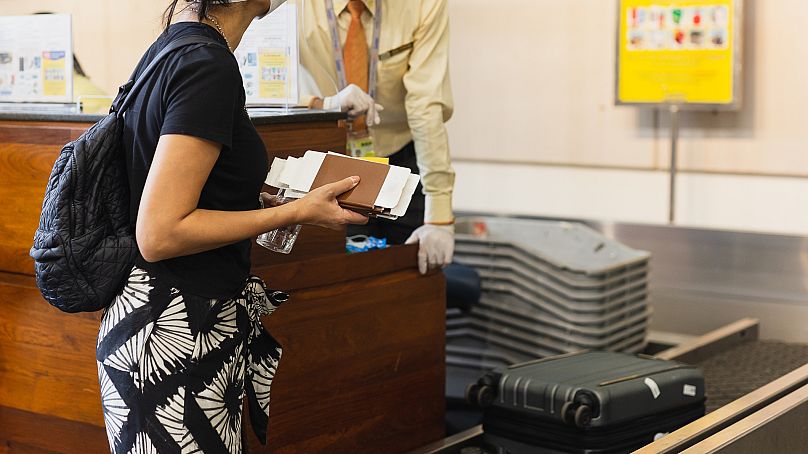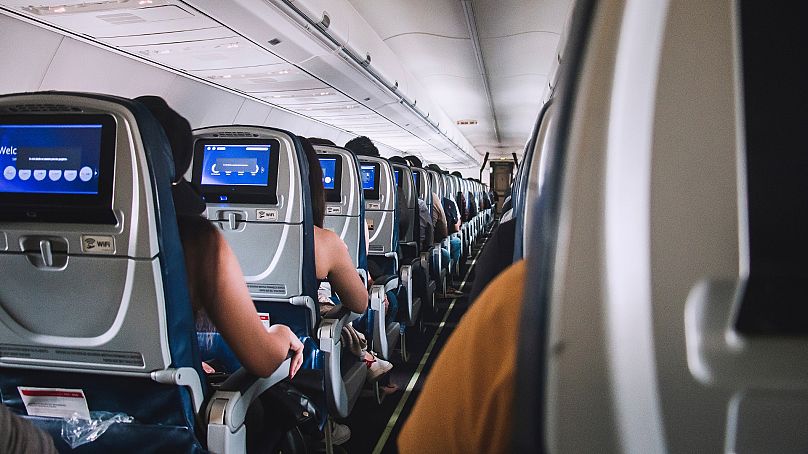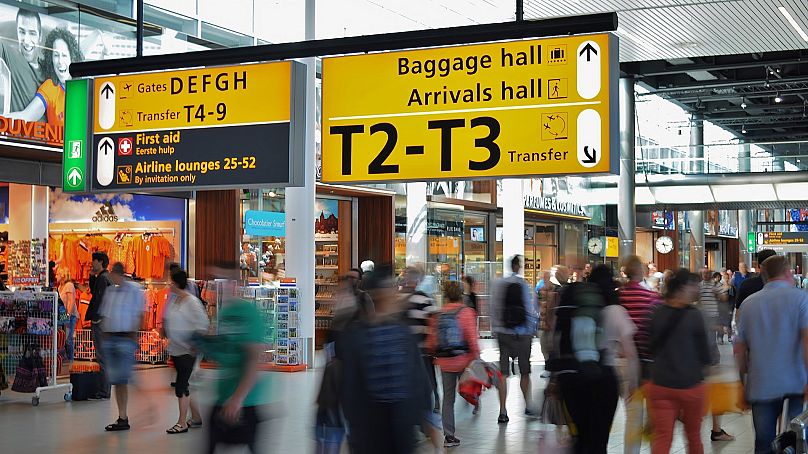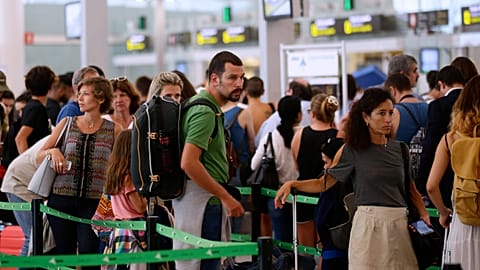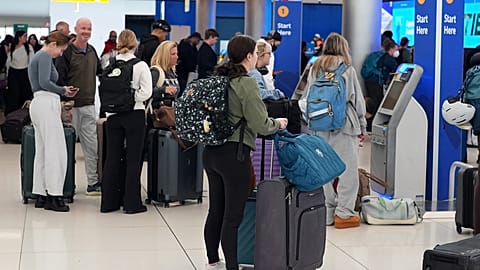Skiplagging could save you money but there are some significant risks and downsides to this cheap travel trick.
The price of airline tickets has reached an all-time high this year. With costs soaring, passengers are desperately searching for cheap flights.
Some methods, however, are riskier than others - like skiplagging. Also known as ‘hidden city’ or ‘throwaway’ ticketing, this practice has become increasingly popular over the last few years.
The cheap ticket hack involves buying a less expensive ticket with a layover in the city you want to travel to and then not catching the second flight.
There are a number of downsides and you’re unlikely to be popular with the airline you fly with if you’re caught skiplagging.
So how exactly does it work and what are the drawbacks?
How does skiplagging work?
Skiplagging is when you book an indirect flight that costs less than a direct flight and then you don’t take the connection. It is a way of finding a nonstop flight without the price tag that often comes with these tickets.
Say, for example, you wanted to fly from Geneva to Madrid. A ticket to somewhere else in Spain like Culleredo with a layover in the Spanish capital could save you around 20 per cent. You wouldn’t travel on to Culleredo and would instead leave the airport in Madrid without using the second half of your ticket.
You could save money on longer distance journeys too. A last-minute skiplagged ticket from Birmingham, UK to New York, US could save you around €100.
Finding fares like this on your own isn’t easy though it can be done with price comparison sites like Kayak or even Google Flights. But a dedicated website - Skiplagged - was founded in 2013 for people to search for these hidden city fares.
Its homepage states “Our flights are so cheap, United (Airlines) sued us...but we won” giving you a bit of a clue on how airlines feel about this practice.
What are the downsides of hidden city ticketing?
Despite the cheap fares, there are some drawbacks to skiplagging - like not being able to check in your bags.
Your ticket is for the final destination of the journey meaning if you check in your bags, that’s where they will end up. Some seasoned flight hackers even recommend travelling with nothing larger than a rucksack due to the chance that you could be asked to check your luggage on a busy flight. Read these expert tips on how to travel with only hand luggage.
Using a round-trip ticket is also unlikely to work. Airlines are likely to cancel the return portion if they notice what you’ve done.
“Travellers who do decide to skiplag should always book one-way tickets, that way their return trip won't be cancelled if the airline does cancel their ticket,” warns Edward Russell, airlines reporter for industry publications Skift and Airlines Weekly.
There’s also a chance that the hidden city you are aiming for might not actually be where you end up. Scheduling, rerouting and complicated logistics are an integral part of planning flights.
This means that your connecting city could change leaving you with a ticket to nowhere near where you want to go.
Why don’t airlines like skiplagging?
“Airlines price tickets based on the market and competition, not necessarily the distance of the flight. That's why a short trip is often more expensive than a long one,” Russell explains.
He uses the example of the Tampa, Florida to Charlotte, North Carolina route in the US. Though Tampa is typically a cheap place to fly to because of the prevalence of budget carriers, this particular route is dominated by American Airlines.
“So American [Airlines] can charge as much as they want for trips just between Tampa and Charlotte. But if a traveller is flying between, say, Tampa and New York they have lots of choices, so American [Airlines] is likely to match those fares Tampa-New York fares even if the itinerary includes a stop in Charlotte.”
“In short, market competition dictates airfares more than distance or any other factor,” Russell concludes.
An empty seat is also one that could have been sold to another paying passenger. Airlines claim that this means they lose money when passengers don’t continue to their final destination.
Virtually all airlines explicitly prohibit skiplagging in their terms of service with varying degrees of consequences if you are caught.
That could mean anything from cancelling loyalty benefits like points that you’ve accrued through flights all the way through to being banned from travelling with a particular carrier ever again or even lawsuits.
In July this year, a teenager in the US attempted to use this hack to travel from Gainesville in Florida to New York with a stop in Charlotte, North Carolina - his actual intended destination. But American Airlines discovered what he was up to and he was pulled aside by a gate agent.
Eventually, after the teen admitted he had no intention of travelling on to New York, a representative from the airline cancelled his ticket.
Reports from local media claim that the flight was purchased using the Skiplagged website. The teenager’s father has said that they have used the site to book travel “almost exclusively for the last five to eight years”.
Is skiplagging legal?
With airlines so against the practice, you might be wondering whether choosing to leave the airport at your layover destination is legal. The answer is broadly yes but that doesn’t mean it comes without consequences.
“The practice, while discouraged by airlines and barred in their contract of carriage, is rarely against the law,” Russell explains.
You do need to make sure that you have the correct visas and entry requirements for the country you intend to visit, however, just like you would with a direct flight.
There have been cases where airlines have sued passengers but Russell says they are rare.
In 2019, Lufthansa attempted to take a passenger to court for booking a hidden city fare. They were requesting more than €2,000 for the cost of what was a multi-city flight instead of the round trip ticket. It was thrown out of a low-level court at first then Lufthansa appealed the decision and then eventually withdrew from the case unexpectedly.
“Travellers should worry more about potentially being banned from an airline - something airlines can do - than facing criminal charges,” Russell adds.















